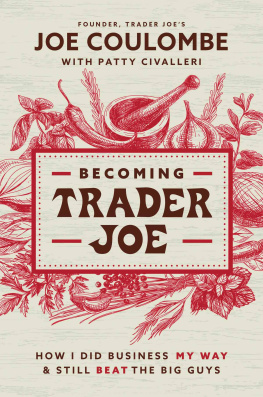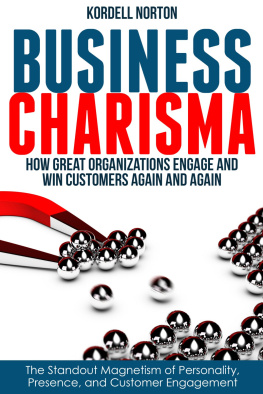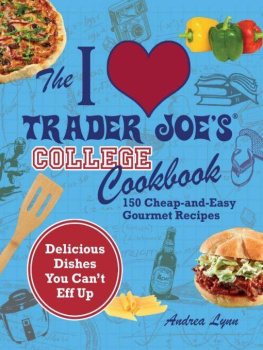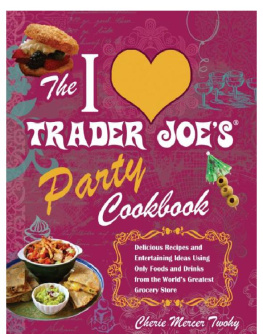2021 Lisler, Inc.
All rights reserved. No portion of this book may be reproduced, stored in a retrieval system, or transmitted in any form or by any meanselectronic, mechanical, photocopy, recording, scanning, or otherexcept for brief quotations in critical reviews or articles, without the prior written permission of the publisher.
Published by HarperCollins Leadership, an imprint of HarperCollins Focus LLC.
Excerpt from The Name of the Rose by Umberto Eco, translated by William Weaver. Copyright 1980 by Gruppo Editoriale Fabbri-Bompiani, Sonzogno, Etas S.p.A.
English translation copyright 1983 by Houghton Mifflin Harcourt Publishing Company. Reprinted by permission of Houghton Mifflin Harcourt Publishing Company. All rights reserved.
Any internet addresses, phone numbers, or company or product information printed in this book are offered as a resource and are not intended in any way to be or to imply an endorsement by HarperCollins Leadership, nor does HarperCollins Leadership vouch for the existence, content, or services of these sites, phone numbers, companies, or products beyond the life of this book.
ISBN 978-1-4002-2541-5 (eBook)
ISBN 978-1-4002-2543-9 (PBK)
Library of Congress Control Number: 2021935943
Epub Edition April 2021 9781400225415
Printed in the United States of America
21 22 23 24 25 LSC 10 9 8 7 6 5 4 3 2 1
Table of Contents
- A Trader Joes Sampler:
Before we get into the details, here are some Trader Joes products that have especially interesting stories - The Milk Train Doesnt Stop Here Anymore:
In 1965, I was forced by competitive pressures to convert a convenience store chain, Pronto Markets, into Trader Joes - The God of Fair Beginnings:
How I got started with Pronto Markets as a subsidiary of the giant Rexall Drug Co. in the 1950s - The Guns of August, the Wages of Success:
I bought Pronto Markets in September 1962 and made the most important decision of my career: pay high wages - On the Road to Trader Joes:
Those high wages force me into merchandising moves, which led to Trader Joes - How I Love Lucy Homogenized America:
I smelled a chance to be different - Good Time Charley:
Aloha! The first version of Trader Joes, 1967, was the fun-leisure-party store - Uncorked!:
How we managed to break price on wine despite the Fair Trade Laws - Whole Earth Harry:
A serious recession forces me to marry the health food store to the party store, and I got Whole Earth religion in the process - Promise, Large Promise:
Fearlessly advertising Trader Joes
- Mac the Knife:
End of Fair Trade on milk and alcohol in 1977 leads to the third and final version, which I called Mac the Knife - Intensive Buying:
Honest, we love middlemen - Virtual Distribution:
Outsourcing? So thats what you call it! - Private Label Products:
Academic jokes for the overeducated and underpaid - From Discrete to Indiscretions:
Standards are okay, up to a point - Too, Too Solid Stores:
Nymph, in thy orisons be all my sins rememberd! - Skunks in the Office:
Tom Peters runs amok in the organization chart - Double Entry Retailing:
3-D tennis in the check stand - Demand Side Retailing:
Geometry. Advantageous, but not necessarily true - Supply Side Retailing:
Government Intrusion, a supply-side opportunity? - The Last Five Year Plans:
Russia and Coulombe give up Five Year Plans in the same year, 1988
- Employee Ownership:
Founders yah, too bad. And that it led to... - The Sale of Trader Joes:
Money talks - Goodbye to All That:
Auf Wiedersehen
- Post De-Partum:
Or my ten years as a consultant
Guide
I n 1957, I was hired to join Joe Coulombe (19302020) in opening the first Pronto Market, a project that would expand to become Trader Joes. I did not know what an incredible adventure I was getting myself into. As the first employee, Vice President of Trader Joes, and later Senior Vice President of Operations, I had the privilege of working side by side with Joe as he applied his unique marketing concepts and creative imagination to the grocery industry.
His first rule for new ideas was to always think outside the box, but always consider our customers and employees.
During this time, we found ourselves working against a backdrop of the incredible economic, political, and cultural changes that tsunamied us into the future.
In this book, Joe details the invaluable lessons we learned along the way.
His marketing genius, photographic memory, and impeccable integrity will inspire and educate not only entrepreneurs and students of business, but also the loyal customers who have come to appreciate the unique Trader Joes experience. In an entertaining and informative read, Joe describes the creative marketing strategies that still apply today. Hope you enjoy the book as much as I enjoyed my forty-three years at Trader Joesand still enjoy being a customer.
LEROY D. WATSON
SENIOR VICE PRESIDENT OF OPERATIONS, TRADER JOES, RETIRED
Books are not made to be believed, but to be subjected to inquiry. When we consider a book we mustnt ask ourselves what it says but what it means, a precept that the commentators of the holy books had very clearly in mind.
Perhaps the mission of those who love mankind is to make people laugh at the truth, to make the truth laugh, because the only truth lies in learning to free ourselves from insane passion for the truth.
Umberto Eco, The Name of the Rose
Joe Coulombe or Joe Colomba or Joe Colombe
N obody had last names until the fifteenth century, except the top nobility like the Hapsburgs, Hohenzollerns, Plantagenets, Valois, Bourbons, and so on. Then, rather quickly, non-nobility got last names. Some took the name of the city where they lived, and so we get Tony Romas for ribs, and Leonardo da Vinci.
Many others took the name of their work, like the Coopers, Smiths, Fletchers, Shepherds, and Coulombes. Coulombes?
Another privilege of nobility, besides having a last name, was the sole right to raise pigeons for food. The nobles built big, tall, round stone towers called columbaria after the Latin for dove, columba, which housed thousands of the birds. And they must have employed mobs of peasants to tend these towers, because when the Time of Last Names arrived, suddenly we get people all over Europe with names derived from columba.
Regrettably, no one could spell, not even the nobles. Furthermore, there was no general agreement on how words should be spelled until the nineteenth century. Columba was very susceptible to creative spelling. Nowhere was this more true than in Quebec, where in the 1660s Louis XIVs new finance minister, Colbert, initiated a policy of deliberately populating New France with stolid peasants from Normandyamong them a Louis Colombeto make sure the place would always be French. In some ways he succeeded all too well.
These hardworking but illiterate people had a genius for adding or subtracting letters to the base name without regard to pronunciation. Colombe became, among other spellings, Coulombe. And that is why you will not find Coulombe in the Paris phone book, whereas there are pages of em in Montreal.
The point is that Coulombe is pronounced coo-LOAM. I thought this book would be an easier read if you knew that. Whether the mild paranoia generated by a name that few people can pronounce was a factor in my shaping Trader Joes, I leave to your judgment. Whether the substantial paranoia generated by being a left-hander in a right-handed world was a factor in putting a left-handed spin on Trader Joes, however, is beyond dispute. For some competitors, Trader Joes has been sinister in at least two meanings of the word.
Next page






